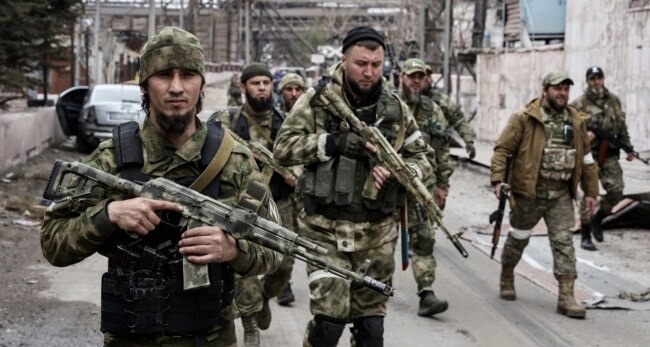RUSSIAN FORCES IN NO HURRY TO LEAVE GEORGIA.
RUSSIAN FORCES IN NO HURRY TO LEAVE GEORGIA.
On July 29 in Moscow, Russia and Georgia held the “third” round in what is only the latest series of negotiations on troop withdrawal. The session resulted in some limited progress, though the Russian side promptly raised a question mark over some of that progress. Moscow has in any case agreed to remove from Georgia, until December 31 of this year, the combat hardware that exceeds the ceilings of the adapted Treaty on Conventional Forces in Europe (CFE).
The treaty obligates Russia to reduce that hardware, by that deadline, to 153 battle tanks, 241 infantry fighting vehicles and armored personnel carriers, and 140 artillery systems. By the same token it requires Russia to evacuate from Georgia, or destroy in place, a total of 244 treaty-limited items in those four categories. The Russians began cutting up some of those items on July 31 at Russia’s armor repair plant in Tbilisi, in the media’s limelight and in the presence of foreign diplomats and military attaches and experts of the Organization for Security and Cooperation in Europe (OSCE). On August 4, amid similar ceremonials, the Russians will begin evacuating their treaty-limited hardware from the Vaziani base near Tbilisi to the Black Sea port of Batumi, whence the weaponry will be shipped to Russia. The United States and other Western countries bear most of the costs of Russia’s scrapping and evacuation operations.
While advertising the beginning of its compliance with CFE, Russia seems about to negate the OSCE-mandated agreements it has reached with Georgia regarding the closure of Russian military bases in that country. The OSCE’s Istanbul summit in November 1999 required Moscow to abandon two–of four–bases in Georgia by July 2001, namely Vaziani and Gudauta. But Moscow now says that it would close down only part of the Vaziani base and retain the airfield. Russian generals claim that the airfield, being located “outside” the base perimeter, is not an integral part of the military base. Russian diplomats insist that the airfield is indispensable to servicing the two Russian bases in Georgia that are not subject to early closure–namely, Batumi and Akhalkalaki, both of which Moscow wants to retain. To bolster their case for retaining the airfield, Russian officials are inspiring media stories which purport to cite Georgians officials as anticipating that NATO would use Vaziani (Russian Television, Itar-Tass, Moscow Central TV, July 30-31). Georgia’s Foreign Affairs Ministry has dismissed such stories as “fictitious.”
The Georgians reject the dissociation that Moscow is trying to introduce between the “general purpose” base and the airfield at Vaziani. They have the OSCE resolutions on their side. Georgia has already announced her intention to convert Vaziani into an international civilian airport, and has approached the Mitsubishi company of Japan for a feasibility study of the project. The airstrip at Vaziani is said to be capable of handling all types of aircraft, including jumbo jet airliners. While insisting on its right to take over the airfield in sovereign ownership, the Georgian government considers allowing the Russian military to use the airfield under Georgian control during the remaining lifetime of Russia’s Batumi and Akhalkalaki bases.
Moscow’s backtracking on Vaziani adds to the backtracking on Gudauta. Instead of closing that base as required by the OSCE, the Russian government wants to legalize it by handing it over to Russian “peacekeeping” forces.
At the Moscow negotiations with Georgia on July 29, the Russian side tried to propose concluding a twenty-five-year agreement on the operation of the Batumi and Akhalkalaki bases. Georgia, however, proposes to have those bases evacuated by the end of 2002 “in a painless manner,” as President Eduard Shevardnadze put it in a July 31 statement. The stage seems set for further Russian prevarication, which Georgia can only overcome with consistent Western backing (Black Sea Press, Prime-News, Kavkasia Press, Tbilisi Radio, July 29-31, August 1; see the Monitor, April 6, May 2, 17, June 28, July 19; Fortnight in Review, April 14, May 26, July 21).
NO VILLAGE, NO PROBLEM?


